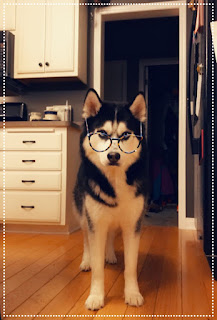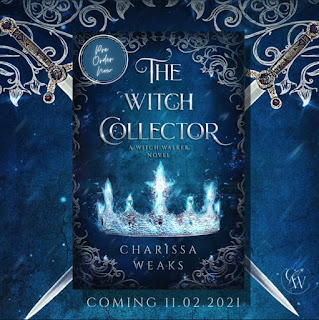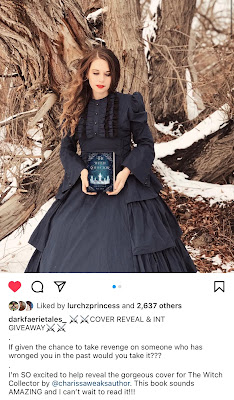Our topic at the SFF Seven this week takes a look at the oft-quoted advice for writers: “If you’re bored writing, the reader will be bored reading.” And we're asking is this true or false?
Well, that's not exactly the easiest question to give an answer, now is it?
So we will answer yes. And thenwe will answer no.
If you are bored writing the first draft of your story,or novel, then the answer is yes. For me at least, the first draft is almost pure exploration and fun. I write as a pantser. I don't often outline anything except in yhead, and that outline is discarded usualluy within the first ten minutes. it simply does not do the job any longer, as the story often takes chrge and pushes said outline to the side while it moves in a very different direction. The frist draft is often written at a furious pace, though as I get oldef that pace slows a bit. I am deicdedly NOT boreed when writing the firt draft.
^=The second and third drafts re very different stories.
The best example I can give is BOOMTOWN, my weird western novel starring recurring character Jonathan Crowley. Listen I knew the book was going to go all over the place. Most of my stories have multiple POVs and characters that range from mostly decent to absolutely reprehensible. I'm okay with that. As far as I'm concerned, that reflects the real world pretty darned well. There are few people who are all good, and few who are all bad, because what I've seen n the real world runs a wide spectrum and I try to reflect as much of the real world as I safely can in my tales.
But BOOMTOWN was different for another reason. It was the first time I ever started a novel and then put that novel on hold for years before finishing it. when I was originally working on BOOMTOWN my wife was in the final stages of kidney faiure. Most of my writing took place on a laptop cpmputer while I sat in the waiting room of the clinic where she had dialysis. Beeive me, it was a very different experience. I was worried about my wife constanty. I was tworking a full time job, writing full time, tking care of my beloved and sleeping rougly half as much as I needed to. I was living on coffee a lot of the time.
When my wife passed away, I dropped BOOMTOWN like a hot potato. i couldnt even look at the manuscript, becuse all I coud think of when I did was my wife, and her pain, and her hopes for the future before those hopes were dashed and crushed by reality.
I moved on and srote different things. I had enjoyed what I'd written of the novel, loved iit, in fact, but there was no place in my life for those thoughts and memories, not right then. I moved on and pushed BOOMTOWN into the corner of my mind where I was least likely to look.
And a few year later, I stumbled across that partial manuscroipt and I gave it a read, considered whan I had planned to write and decided enough time had passed for me to safely continue the book. I went back to the simple joy of writing a weird western.. The manuscript was bleak and b=dark, exacty as I had remembered, onoy m0re so, because it brought to mind mmories that I did no0t want to consider.
I did not approach the book the same way the second time around. Despir=te my desire to drive the tale forward in my usual fashion, the novel decided to make me pay a different kind of attention. I found myself reading and rereading every ppassage I'd written, contemplting why I had written what zi had written and debating whether or not I shuo lightnen the tone of the book. Ultimately I decided to trust my initial instincts, and eft the darkness that permeated the whole manuscript alone.
Let me be clear here: BOOMTOWN is one of the darkest things I've ever written. There is a lack of redeeming chracters here, but i can till say that I was never bored when writing the first draft.
Te second nd third drafts? Those got a bit boringl you can onoy look at the same words so many times before the desire to walkaway from the computer gets strong enough to distract.Unlike what I type here, I cleaned up the typos and misspellings to a level I seldom achieve. It was likely the cleanest manuscript I ever turned in, because I needed the extra time to move through my grief, ad to work through the darkness in that tale. Was it exciting work?no, but it was necessry to get that story told and that's what I did.
was it boring No0w and then. But not often. I am blessedly lucky in that I a seldom bored by my chosen career, even the stuff that shoud be boring is interesting to me. RThat doesn't mean it's always exciting. Just that the process is something akin to playing with cly. Not really sculpting anything, just makeing new shapes and seeing what comes of them. Words can be like that, Sometimes you write a perfect sentence the firt time around but mostly I thonk you rehape those sentences a fe times ntil they are at leat moderatey comfortable.
So, no. I do not get n=bored with wr=hat I am writing.
And yes, sometimes the words can bore me to tears, but happily not often.
Was that enough of a ramble? I certainoy hope so.
One last bit for you to consider: if you re never bored with your job, you are truly blessed. I am mostoy =lessed, though now and again I get so busy I don't have time to consider the ramifications of that thought. That's when I worry less baout boredom and more about getting words on papaer as quickly as i can. I love my chosen career. It doesn't always pay the bills as well as I'd like, but i always manage to ahve a good time with the process, even in the darket times.
keep miling,
Jom Moore
















































